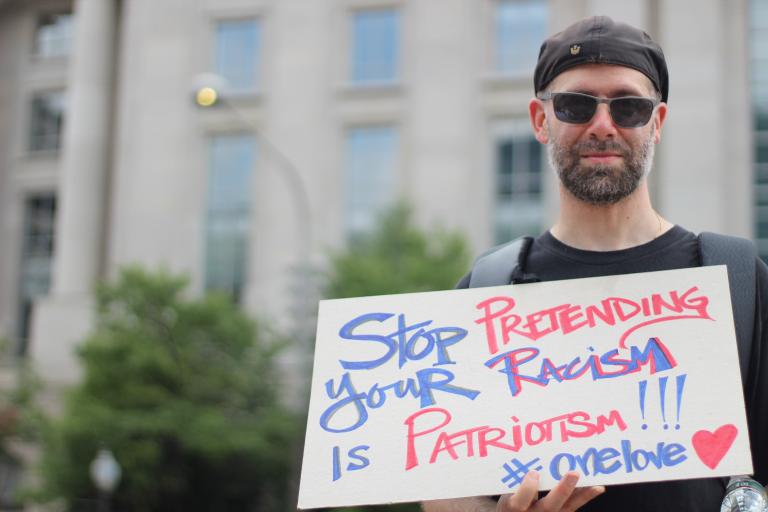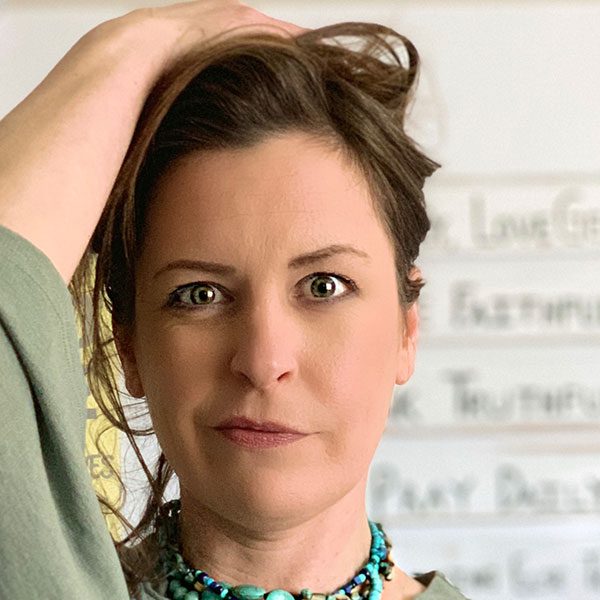
It’s Not Just Thoughts and Prayers
When tragedies as big as the New Zealand Christchurch mosque shooting splash across our news feeds, airwaves, and headlines; we are astutely reminded of the evil that exists within the world. Thoughts and prayers are plastered through all forms of communication…
We are pulled back out of our reality, briefly, to stand in solidarity with the pain and the anguish that is filling the air and our lungs. We share in tears, we speak gentler to our children and coworkers, and we carry a heavy weight with us through the day, and maybe for another day after that. But for most of us, as with any tragedy that occurs; we go back to our own “normal” and slink away until the next media story outrages us. (Most of us do.)
For the majority of us who live in homogeneous communities, we go back to our habitual routines, which are shielded under an umbrella of protections that exclude us from what troubles the rest of the world. In the U.S., for the most part, especially if you are white, you are safe and have the least amount of risk of being victim of terrorism and white supremacist attacks. That’s a privilege many of us take for granted. It’s a privilege that we exploit in our moral indignation and outrage and in our perfectly presented thoughts and prayers.
What’s Enough?
I, with the rest of you, want to point my finger at someone or something to blame. I, like the rest of you, need to name the scapegoat. I, like the rest of you, want to be assured that something will be done to prevent this from happening again. I, like the rest of you, want to find the culprit, charge the culprit, and order and decree that all evil henceforth shall cease. But I, like the rest of you, have no magic wand in my arsenal to grant such a request.
And so then, we are charged with the moral conundrum of asking ourselves what to do about another explicit, intentional, organized act of violence. What are we to do about this ever-growing, steadily evolving, and vastly hidden underground presence of evil that cloaks itself under the guise of nationalism, alt-right radicalism, yet operates as white supremacy? What are we to do about this dominant fear that pervades our planet? Will thoughts and prayers be enough? What will be enough? What are we doing about this? What are we changing? What will this change about humanity?
It’s not apathy or seething skepticism that provokes me to ask these questions; it’s genuine curiosity into the mindset of ordinary individuals. Do we change our behaviors and our actions; our words and our discussions, in such a way that another tragedy has actually seeded a new perspective? My gut tells me no. I realize that’s not quite the scientific approach, but let’s be honest; we act affected by news of tragedy, but in actuality, we do little to nothing to change our own mindsets or behaviors, nor to influence others in a similar manner. We do little to nothing, individually, to actually take action and do something, anything, to prevent this from occurring again.
Solidarity isn’t Just Standing
The most any of us do in an effort to retaliate against the notion of evil is, that we use our voices and our fingers to speak and type our feelings and reactions. We all share in the outrage more so than we stand in solidarity with anyone. And for what? My aim is not to reduce the scope of this serious tragedy, but what exactly are you standing in solidarity with or with whom? I often times think that such a phrase is just as minimizing as offering thoughts and prayers. Sure, we say things like that because we don’t know what else to say or do. But what does it accomplish? Do we even know what “standing in solidarity” looks like?
Islamophobia, Interrupted
What standing in solidarity signifies is that you are aiming to offer not only your support, but a unity with a group of people. People, in this most recent case, who have been denied dignified human rights on account of a prejudice held against them. What it entails is a particular empathy and compassion, in a sense you are feeling into the pain, suffering, and loss.
Furthermore, it means that you are consciously continuing this support, edification, and defense of a people. You are not simply offering thoughts and prayers, but you are interrupting Islamophobia. This means that you are not going along with the joke at the office. This means that you interrupt the crude statements your friend makes at the bar; you don’t dismiss it on account of how much he has had to drink. And sometimes, these methods of interruptions are aggressive, emotive, and downright reactionary.
Committing to the task of interrupting Islamophobia is an intentional and impassioned action that compels an individual to keep the peace. But remember, keeping the peace sometimes means you have to get a little louder than the crowd.
Band-Aids and Bullet Holes
Standing in solidarity looks like inviting the perspectives of others into our own experiences, so that by understanding where another is coming from, we increase our amount of knowledge and experience through their own. That’s a really committed and intimate allegiance that deserves a follow-through if it is to be worthy of such a claim.
Otherwise, it’s merely putting a Band-Aid over a bullet hole. It doesn’t stop the bleeding, it doesn’t remove the bullet, it doesn’t treat the wound at all. It’s just a pretty little dressing to hide the blood. It’s more or less pseudo outrage wrapped with a bow for others to see as a testament to your moral positioning.
Stop the Spread of Supremacy
To interrupt the growth of evil, to silence the spread of the white supremacist view; can we become more aware of the slights and hidden remarks that cause harm? Many of us casually dismiss Islamophobic remarks. Many of us casually dismiss racist remarks and sexist remarks.
We do it because we don’t like confrontation. But maybe we should consider this form of confrontation a necessary act if we are to live consistently by our claims to stand in solidarity with our Muslim sisters and brothers. This means that we must inject interfaith dialogues as well as inter-racial dialogues into our own conversations in our own community settings. So, this means that we must invite our Muslim sisters and brothers in on these conversations. If this means organizing talks within churches, mosques, cultural and community centers, and people’s homes, so be it. If this means inviting people into private web forums to hold dialogues with people remotely, let’s organize that.
Confront Ignorance- Compassionately
This also mean confronting our friends and family about their ignorance and patterns of white supremacist speech and Islamophobic rhetoric. If we cannot confront these issues within our intimate circles of family members and friends, how will we ever be able to interrupt Islamophobia that we witness outside the comforts of our influence? Aren’t we committing to be an influence in our position to stand in solidarity? It starts at home.















